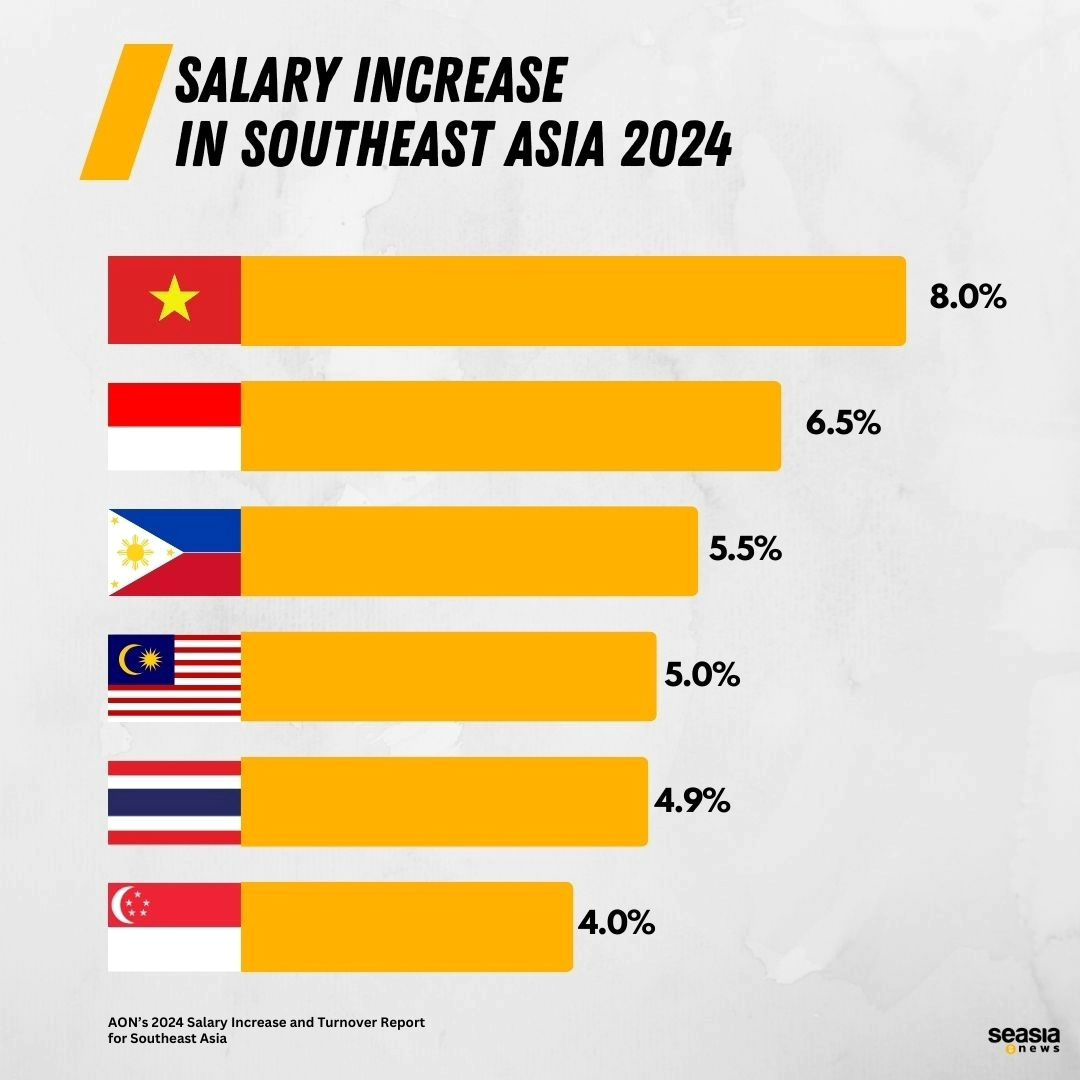As the years 2023 come to an end, it remains prevalent to see workers’ unions urge the government raising the minimum salaries. A recent study from AON, a global business consulting firm, highlighted employees in Southeast Asia would see their increased salaries in 2024.
The AON’s 2023 Salary Increase and Turnover Report for Southeast Asia reveals projected salary growth for Indonesia, Malaysia, Philippines, Singapore, Thailand, and Viet Nam for the year 2024.
With a projected salary rise of 8.0% in 2024, compared to an actual salary increase of 7.5% in 2023, Vietnam leads the list. Next in line is Indonesia, seeing 6.5% growth, 0.5% higher than the previous year.
The Philippines is expected to attain the top third of the ranking with a 5.5% increase, or slightly 0.3% greater than its actual increase in 2023.
Thailand forecasts a growth rate of 0.2%, increasing from a 4.7% actual rise in 2023 to 4.9% in 2024. However, Malaysia and Singapore projections followed a similar pattern against the other four countries. Malaysia’s rise would remain steady at a 5% rate, while Singapore’s would be at a 4% rate.
The research further discovered that firms in the surveyed area exhibit a measured sense of cautious optimism over their recruiting practices. Of the 950 employers surveyed, 40% claimed no changes to their recruitment numbers, while the other 40% reported hiring restrictions.
With new hire premiums averaging between 5.6% and 13.3%, companies are likewise becoming more cautious with compensation expenditures. However, this stands in stark contrast to 2022, which averaged between 14.7% and 23.6% amid a hiring boom in Southeast Asia.
Pay compression, in which there is a disparity in salary amongst workers regardless of their level of experience and expertise, is a real concern for employers, according to Alina Cheng, head of Data Solutions, Southeast Asia for Talent Solutions at Aon.
“When newly hired employees are granted higher compensation than their longer employees, firms are likely to see pay compression issues emerge,” Cheng pointed out in a statement.
Cheng warned employers that pay compression could result in a surge in attrition rates and a notable decline in employee morale within a firm.
"By prioritizing and nurturing talent from within, companies can subsequently reduce the need for new hire premiums along with enhancing their organization's employee value proposition," Cheng added.
Source: Aon.com




















